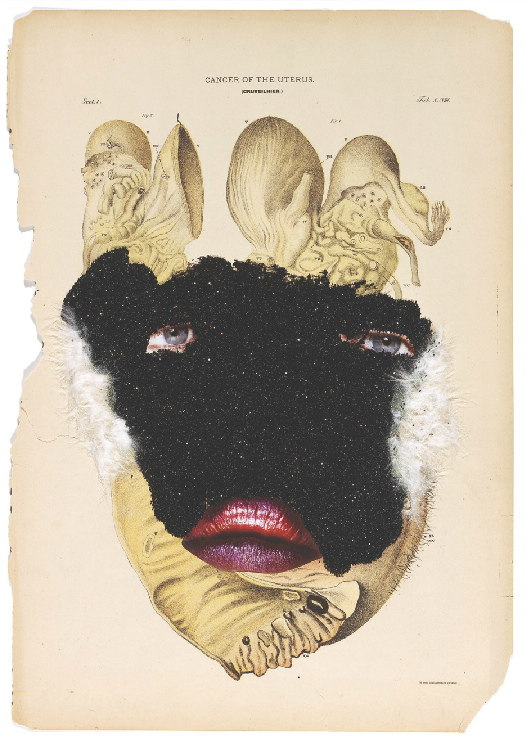Response to Kyla Wazana Tompkins, “On the Limits and Promise of New Materialist Philosophy,” published in Lateral 5.1. Huang reassesses the methodological implications of new materialisms by grappling with renewed attention to form in literary studies to articulate the varying processes by which racial difference becomes elided, rematerialized, and remade.
Keyword: race
Toward a Crip-of-Color Critique: Thinking with Minich’s “Enabling Whom?”
Response to Julie Avril Minich, “Enabling Whom? Critical Disability Studies Now,” published in Lateral 5.1. Kim elaborates upon a crip-of-color critique, which has possibilities to both criticize structures that inherently devalue humans and to take action to work toward justice. Kim’s final call is to identify and act against the inequalities and harm of academic labor, urging readers to take seriously a “politics of refusal” that might help academics of color survive through alternative collectivities.
Neoliberalism, Racial Capitalism, and Liberal Democracy: Challenging an Emergent Critical Analytic
Response to Jodi Melamed, “Proceduralism, Predisposing, Poesis: Forms of Institutionality, In the Making,” published in Lateral 5.1. Aho pointedly argues that studies of institutionality all too often substantiate what she calls neoliberalocentrism, which readily posits neoliberalism as the singular paradigm into narrating a teleological development of history. Instead, she echoes Kim and Schalk to articulate ‘crip-of-color materialism’ as an analytic that thickens understandings about global structures of inequity and fissures within them.
Review of Speculative Blackness: The Future of Race in Science Fiction by André M. Carrington (University of Minnesota Press)
André Carrington’s ‘Speculative Blackness’ is a novel approach to the consumption of race representation in media. Carrington explores how Blackness is manufactured, consumed, and transformed through the speculative fiction genre across multiple 20th and 21st century mediums. Traditional media of comic books and television shows reveal the marginalized status of Black figures however, these media do not exist in a vacuum. The consumption of speculative fiction is a transformative process for the original content, which consequentially produces amateur media due to a long-established history of fan interaction. Black representation is characterized as the exception, not the rule, in traditional production, but fan consumption reconfigures these notions. Ultimately, Carrington’s work is an innovative dialogue regarding a genre that creates worlds speculating on what could be. Speculative fiction breaks down preexisting notions of our reality and creates worlds with entirely new expectations and interactions. With the creative liberty of the genre, Carrington casts Black representation as a consumed media but also an imaginative effort.
“A Black Man Replies”: Claude McKay’s Challenge to the British Left
Anne Donlon delves into the history of the British Left after World War I to assert the significance of the Black and feminist interventions of Claude McKay and Sylvia Pankhurst. Donlon centers the publication of “A Black Man Replies,” McKay’s letter to the editor published in Pankhurst’s newspaper The Worker’s Dreadnought, against white supremacist logics mobilized by prominent 1920s leftists that contributed to the reestablishment of policing of and violence against black men. Donlon’s archival discoveries weave together biography, material cultural analysis, and histories of trans-Atlantic activism, and, in the process, reveal the labor of building radical intersectional solidarity that came before and followed the moment of “A Black Man Replies.”




